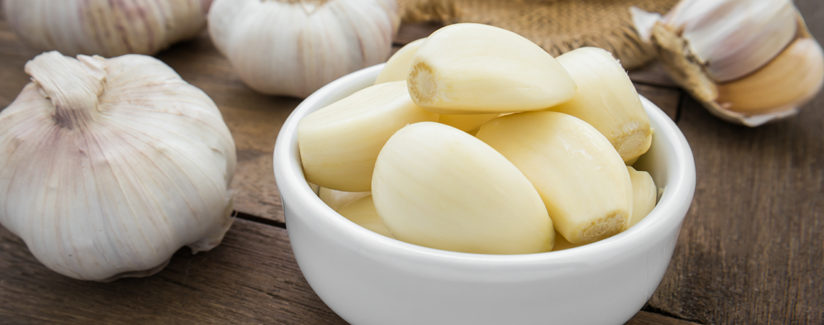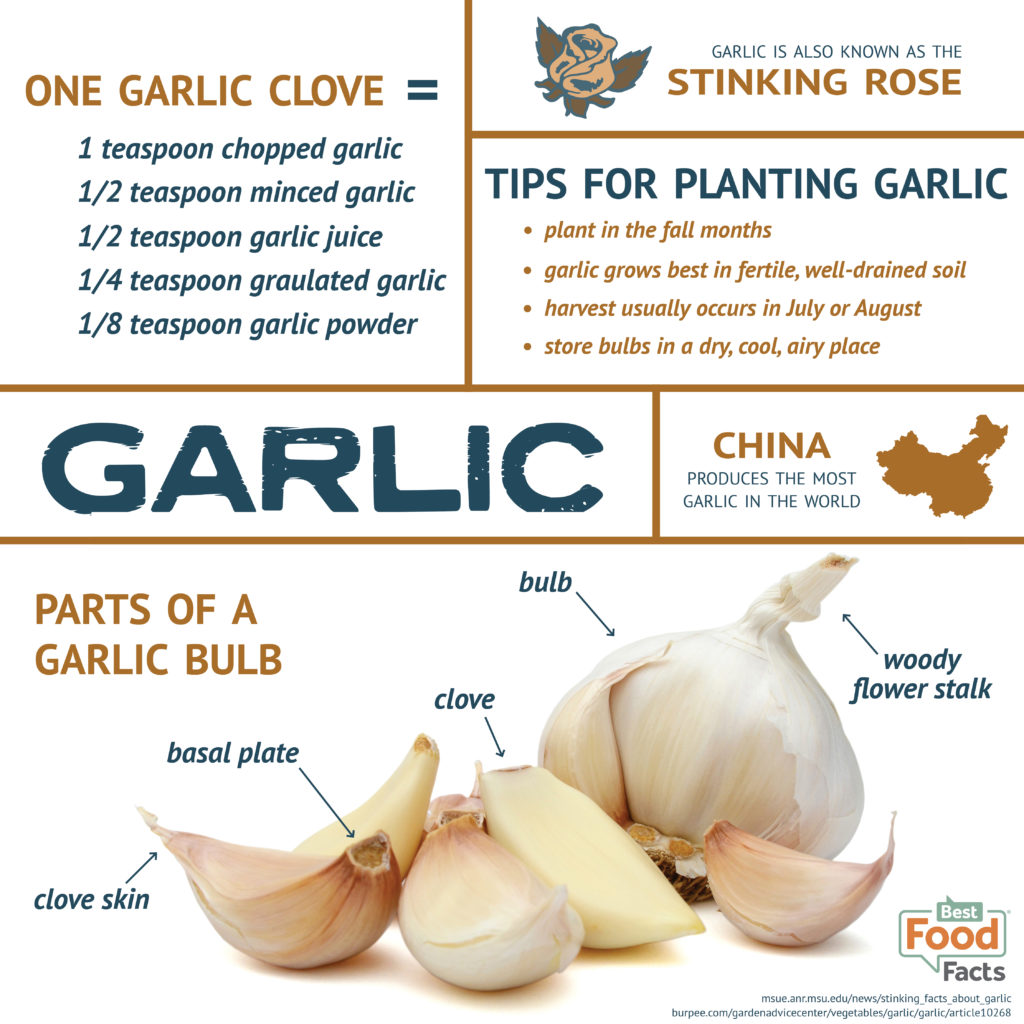
Does Garlic Have Health Benefits?
08/06/2018
Garlic is a root vegetable grown in bulbs with quite a sharp flavor. It is often used in cooking as a flavor enhancer to avoid using too much salt or fat. But are there any health benefits to garlic? What’s the difference in all these kinds of garlic we see on the shelf at the grocery store? We have the answers to these questions and more!
How long does fresh garlic stay good?
An article from Michigan State University Extension tell us that fresh, unbroken garlic bulbs can be stored in an open container for up to eight weeks in a cool, dark place. Within each bulb, there are 12 cloves. Once these cloves have been broken from the bulb, they will keep for three to 10 days. A garlic bulb or clove should be thrown out if it feels soft or shows signs of mold.
What’s the difference between garlic powder, garlic salt and garlic extract?
Aside from fresh garlic, we can also purchase garlic powder, garlic salt or garlic extract. Garlic powder is just dehydrated, ground garlic. Garlic salt is made from garlic powder blended with salt. Fresh garlic cloves are pressed to make garlic extract or garlic juice.
Does garlic provide any health benefits?
We reached out to Connie Diekman, Director of University Nutrition at Washington University in St. Louis, with questions about the potential health benefits of garlic. She tells us that there is little research to support any health benefits of eating garlic.
“Garlic has been consumed for ages and reports of “feeling better” follow it but when looking for a body of evidence to support health benefits, things are less clear. While there are some studies that have shown a benefit to cholesterol reduction the evidence is limited and mechanism is not clear. Similar facts exist with regards to studies done related to several types of cancer and the common cold. While some studies in animals show a health benefit human studies are needed.”
Is there a risk of eating too much garlic? How much is too much?
Diekman tells us, “garlic can trigger a variety of gastrointestinal complaints when consumed raw, in excess, or by some people who seem to respond with an allergic type reaction. The phytonutrients that provide health benefits can also trigger these reactions. The question of how much is too much is a bit harder to address and may be individually determined. Some research indicates that four cloves a day is probably an upper limit for intake but for many people the impact of that many cloves on breath might be the biggest deterrent for consumption. Garlic can interfere with blood clotting, when consumed in excess, so it is important to tell your physician if you take a garlic supplement or use large amounts daily.”
Garlic could provide health benefits, but the research isn’t clear yet. It is known that using garlic in our cooking makes healthy eating easier by avoiding the overuse of salt and fats.



























